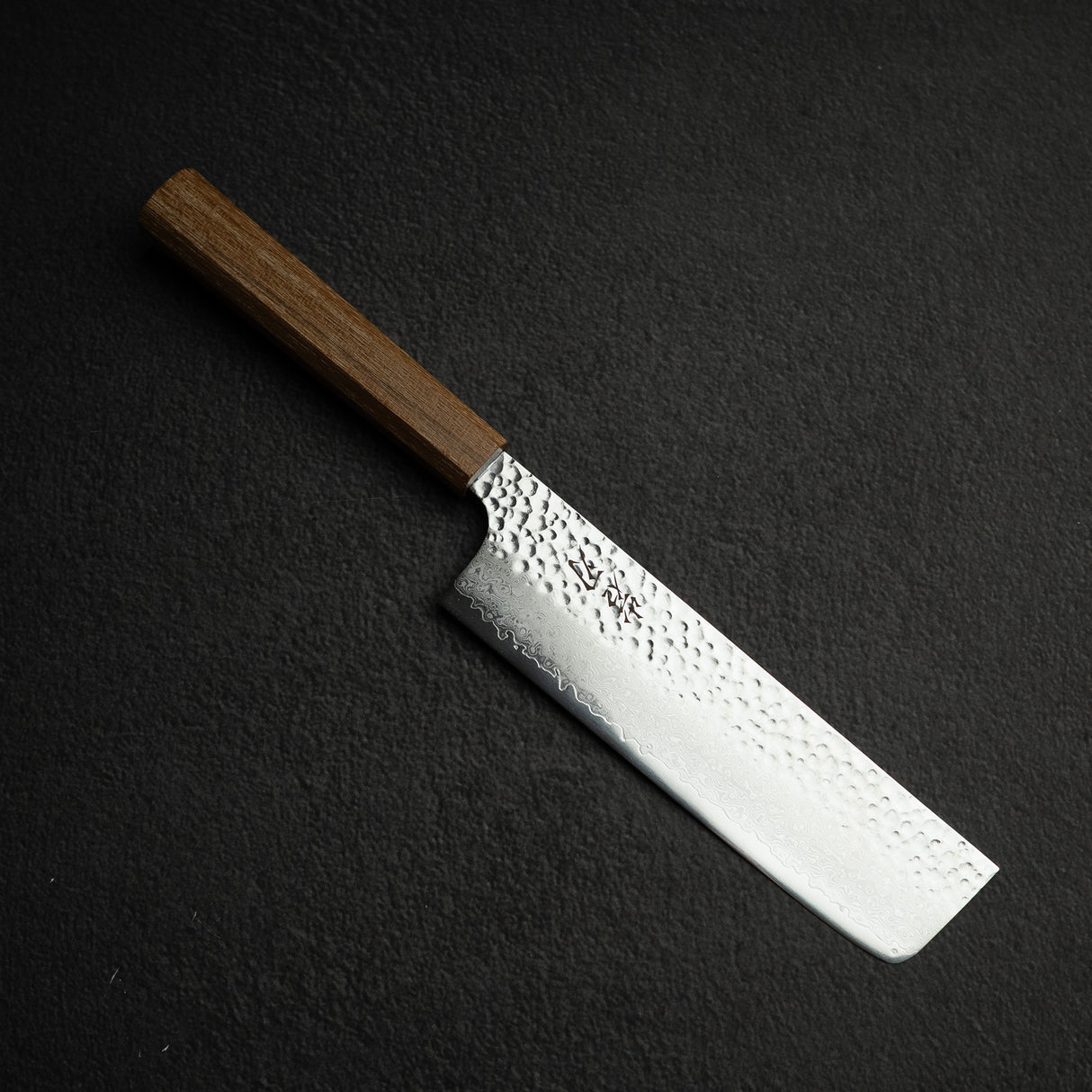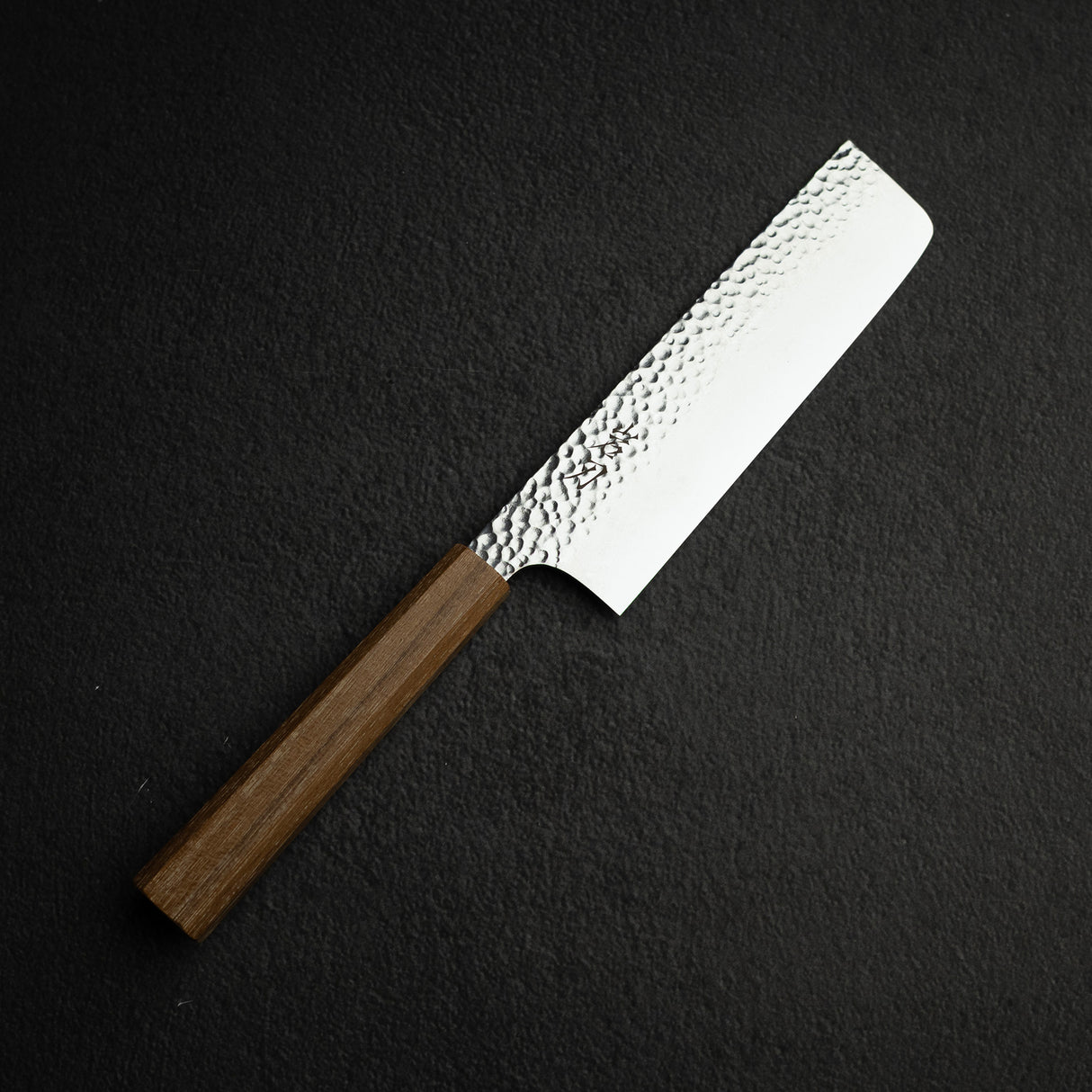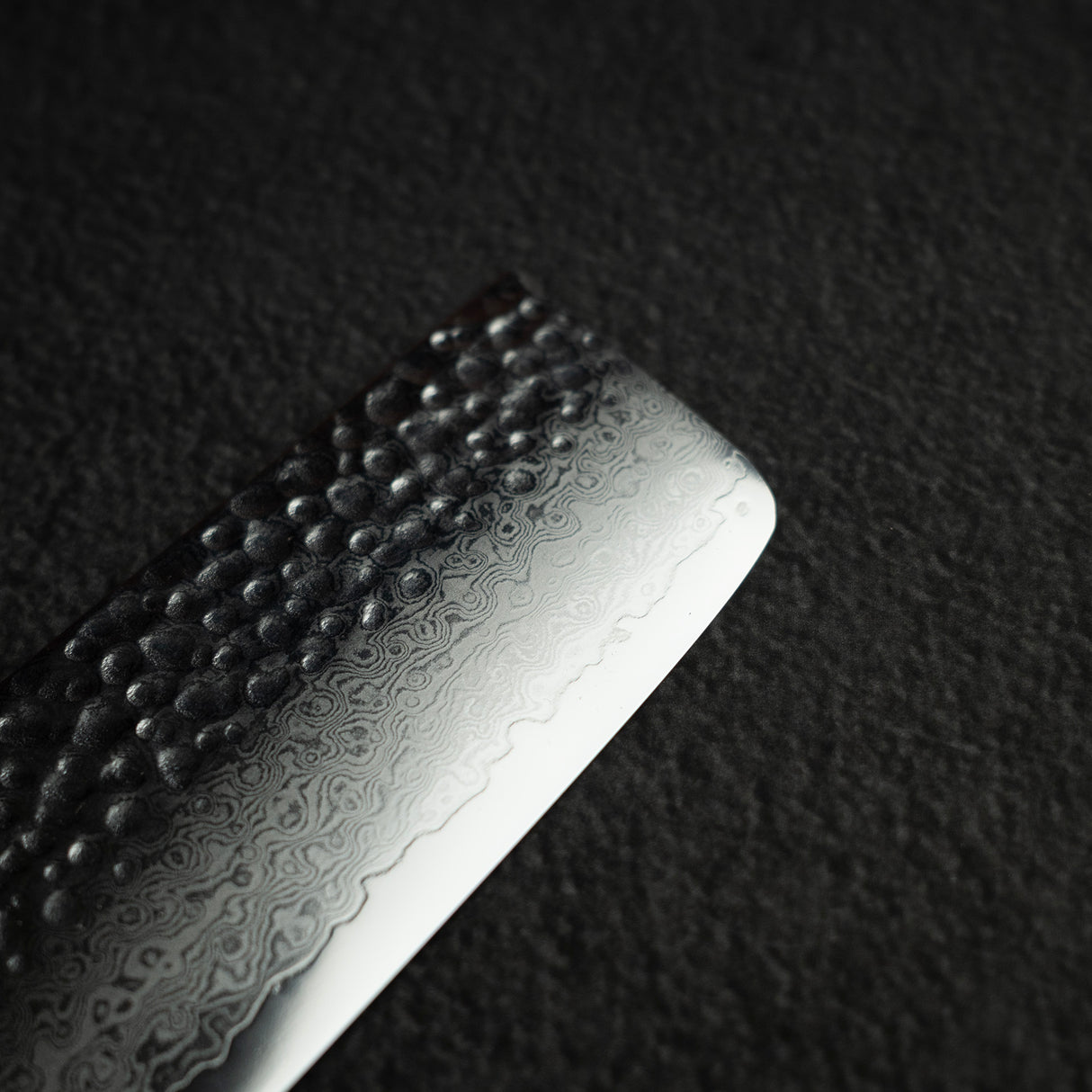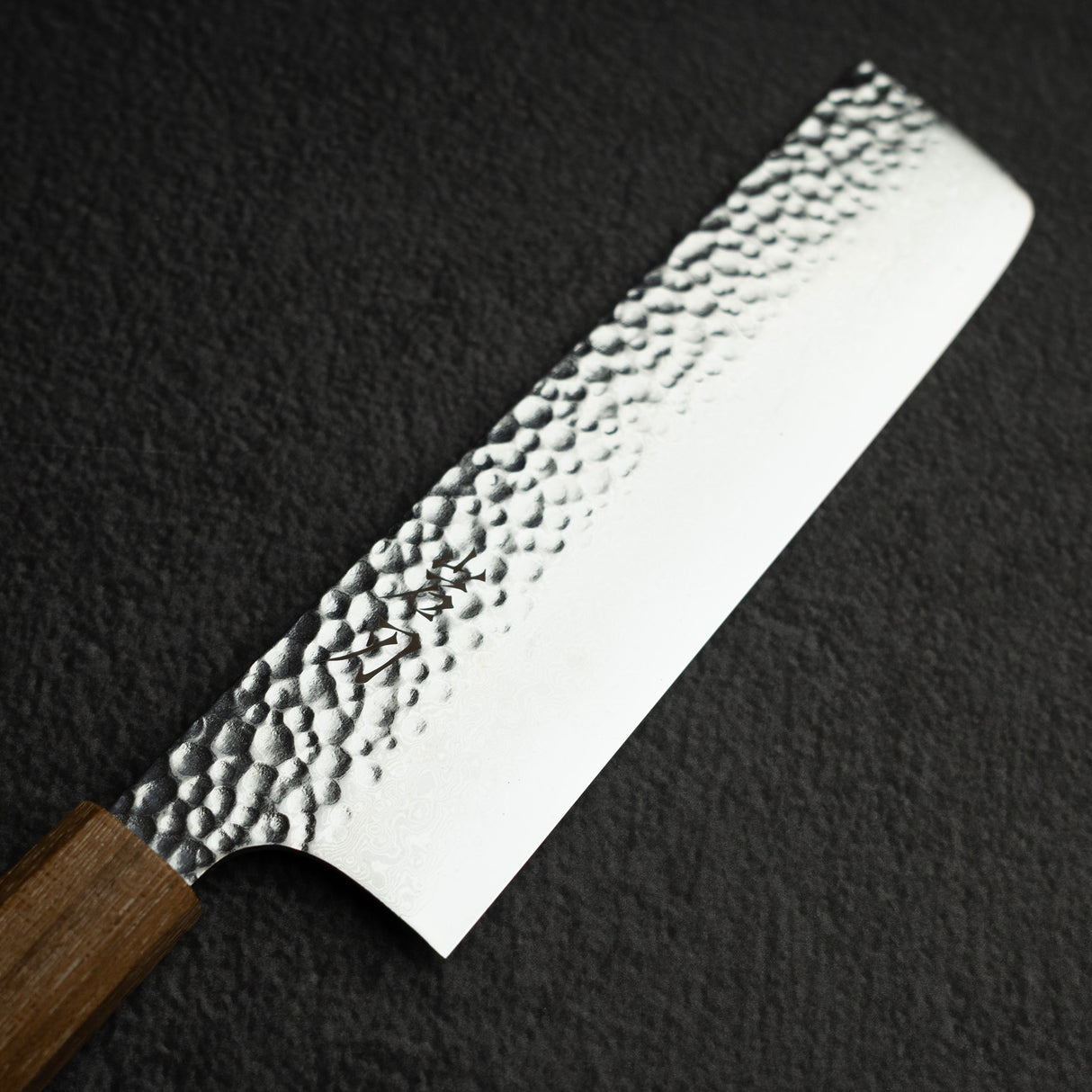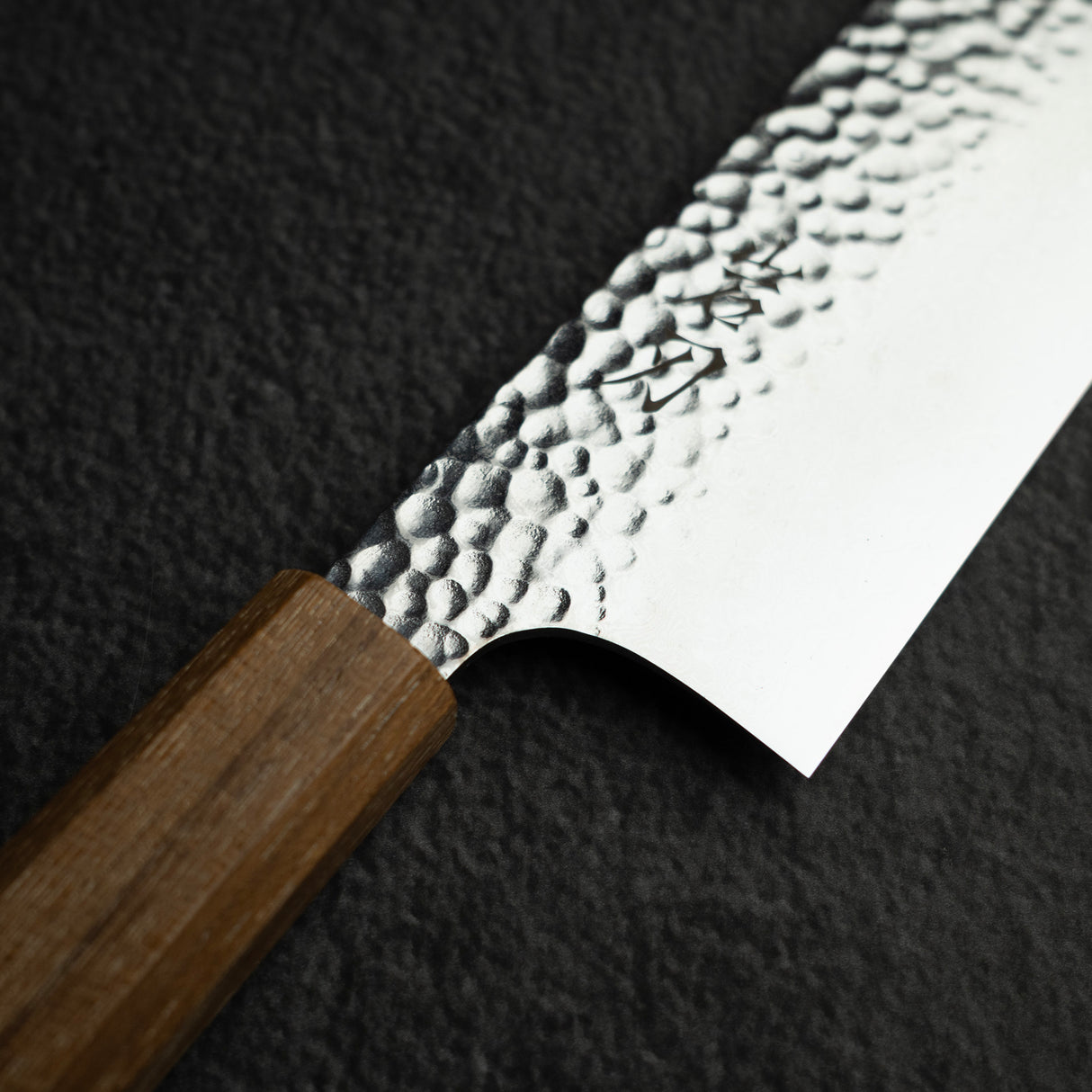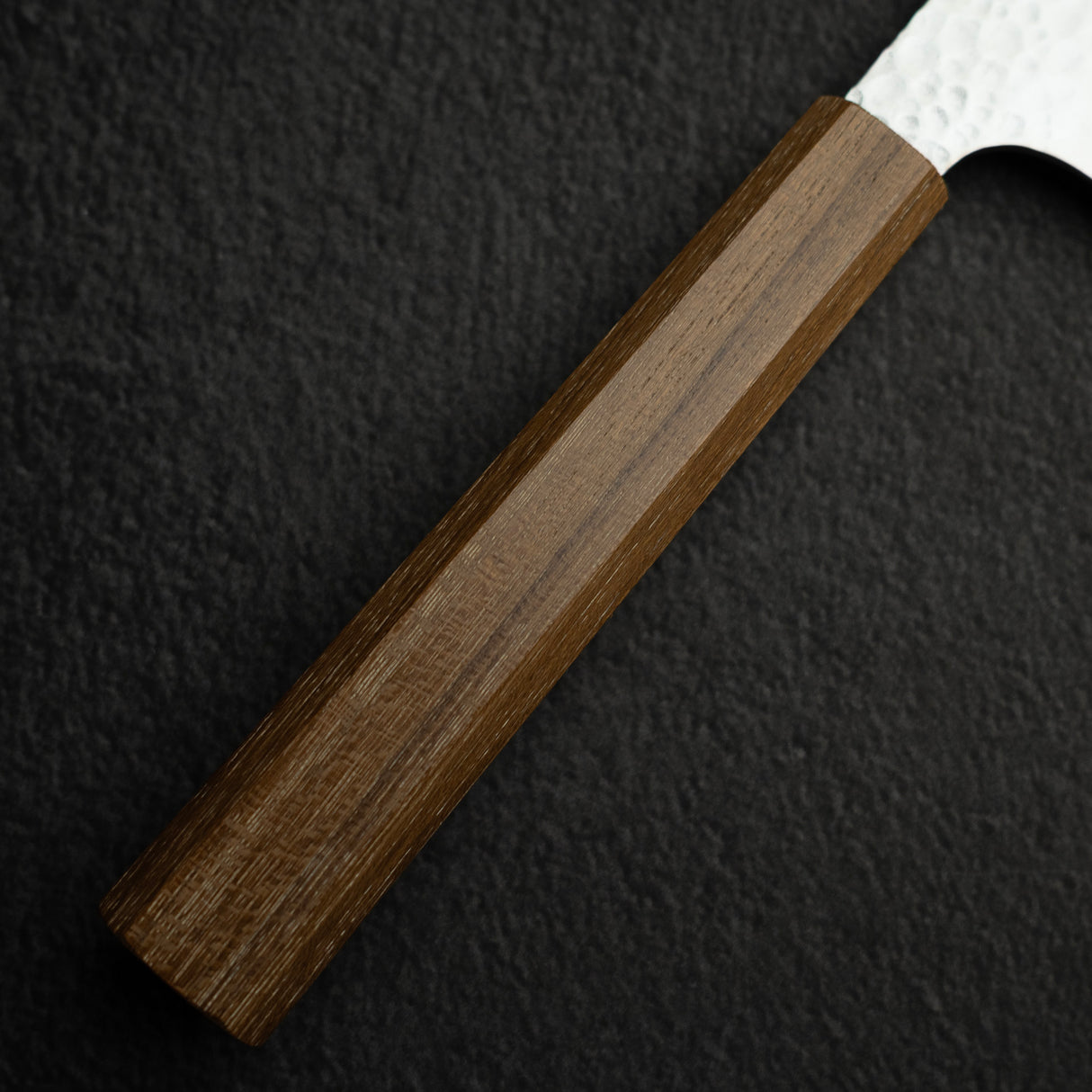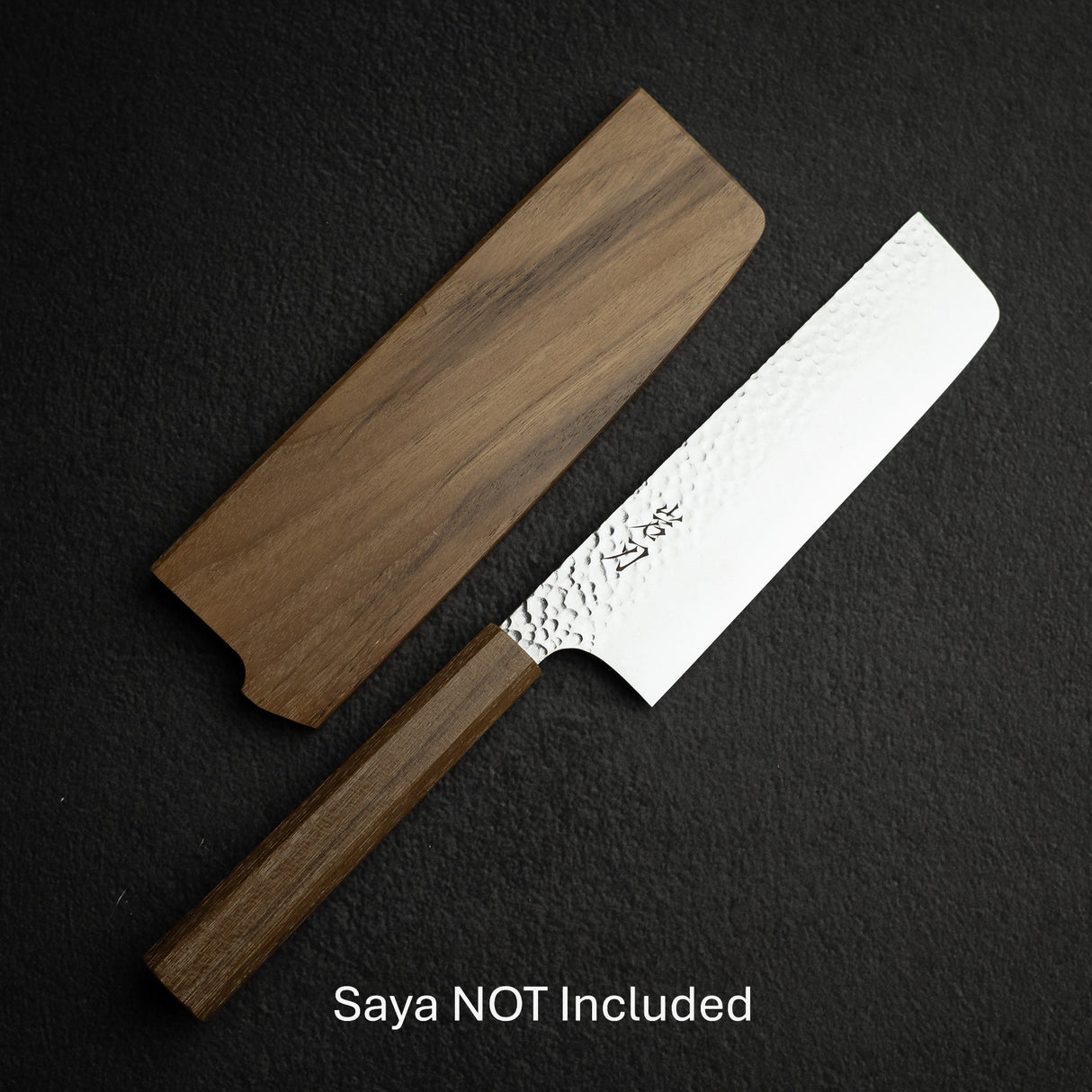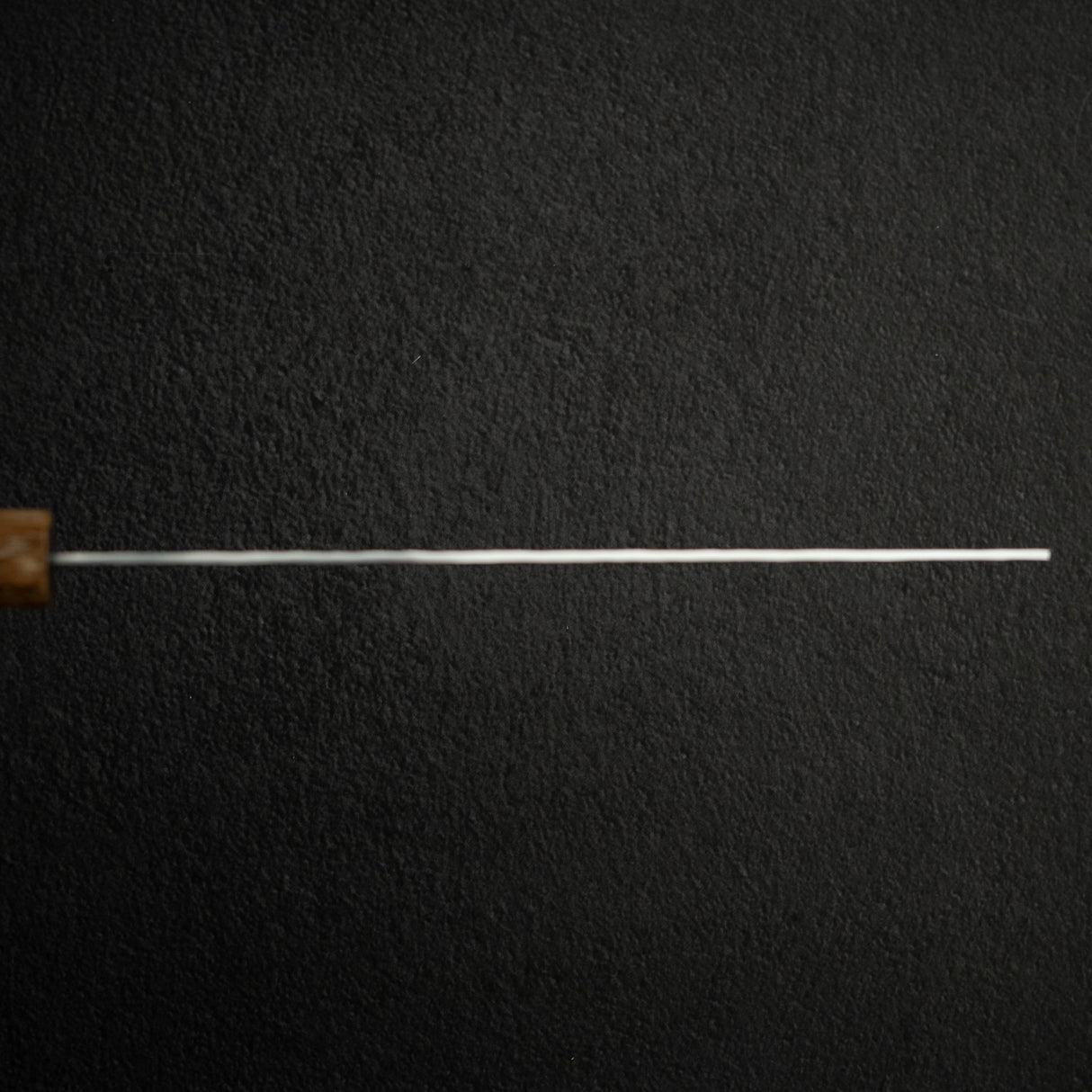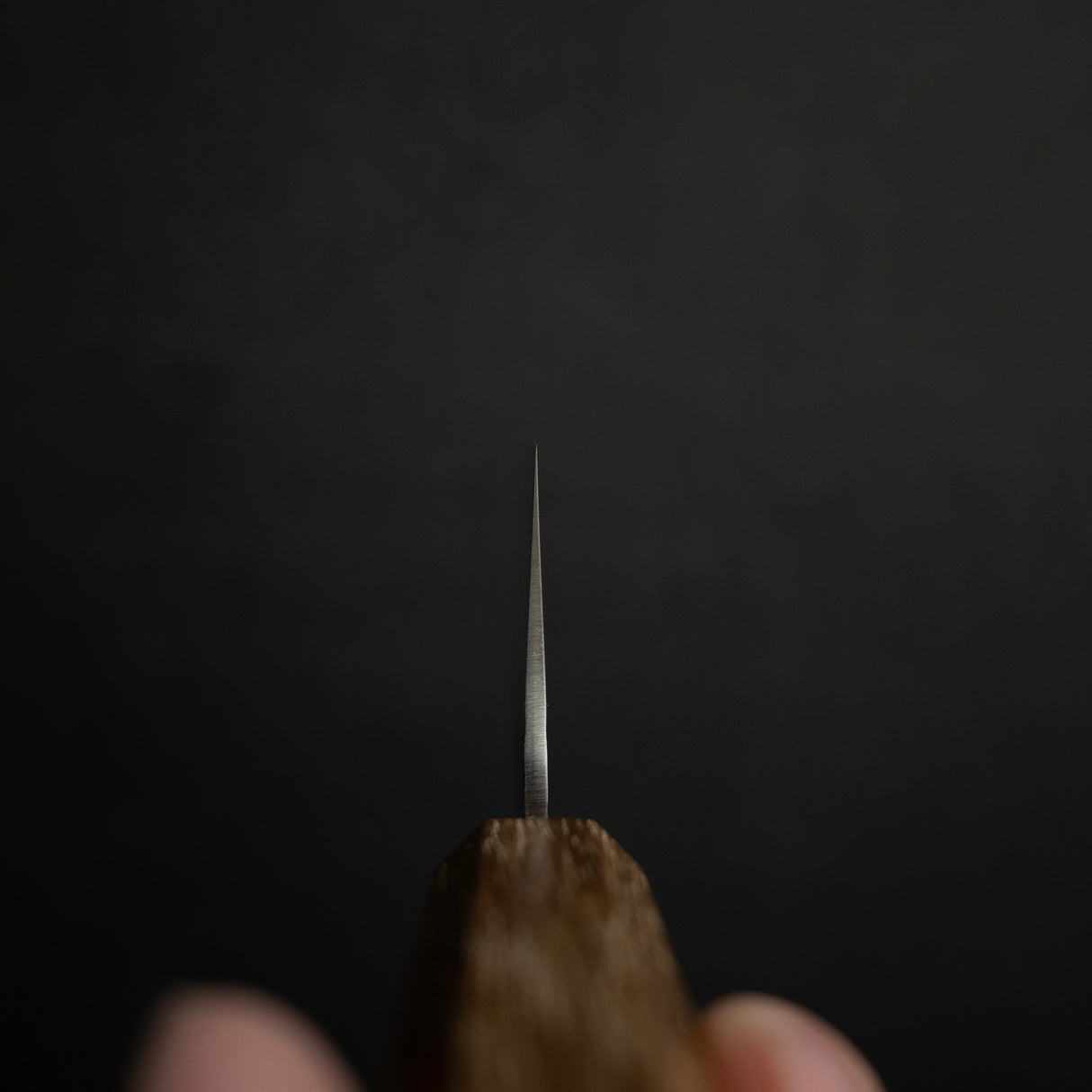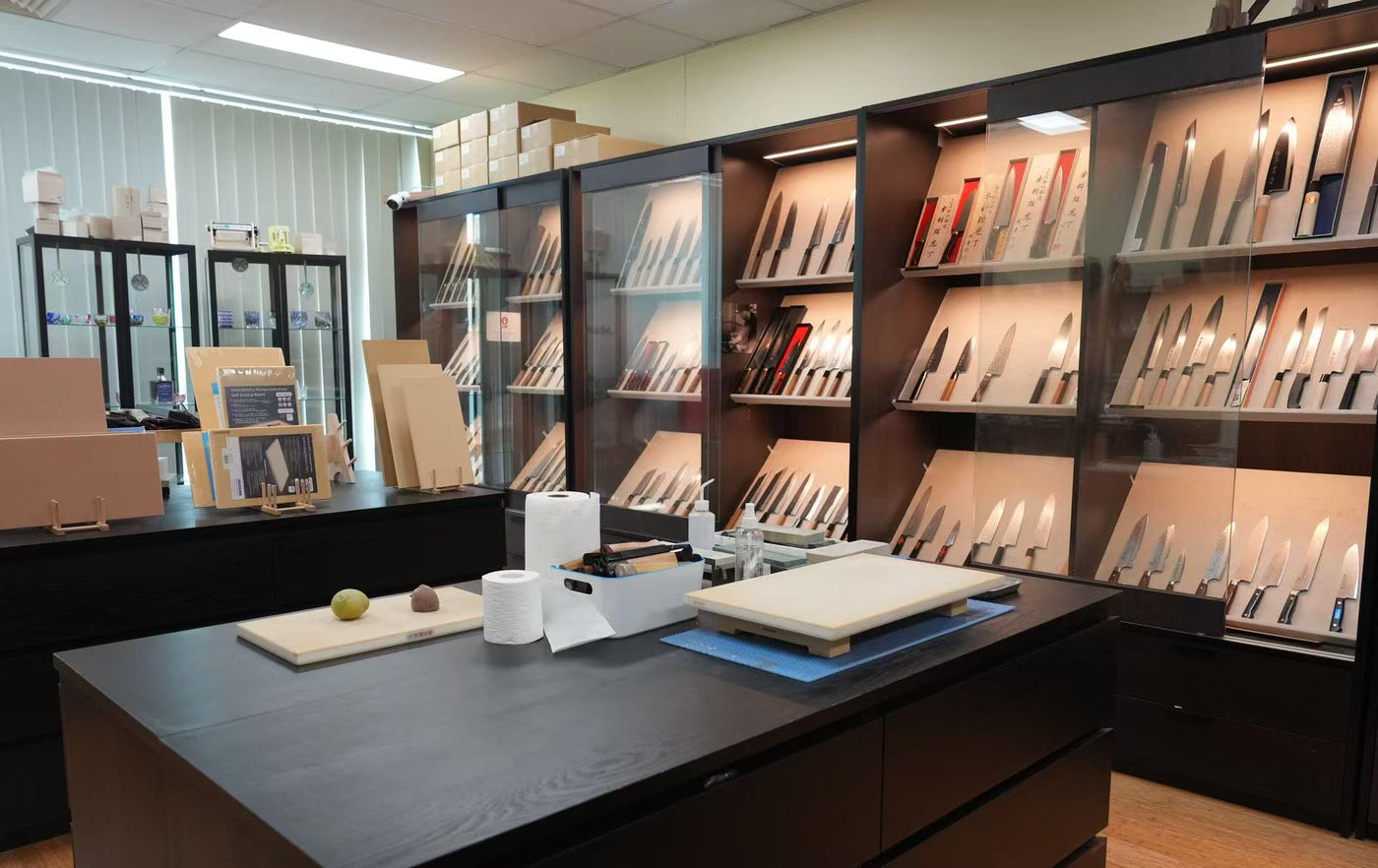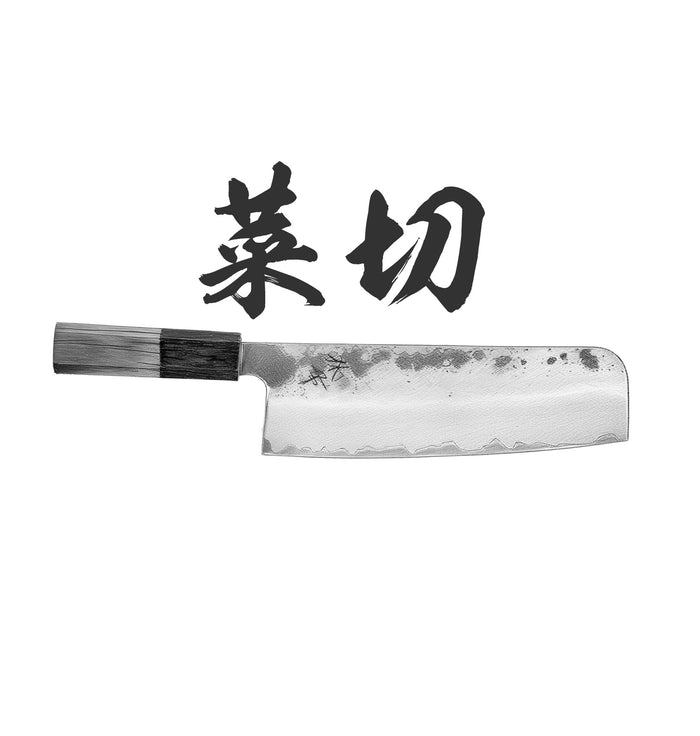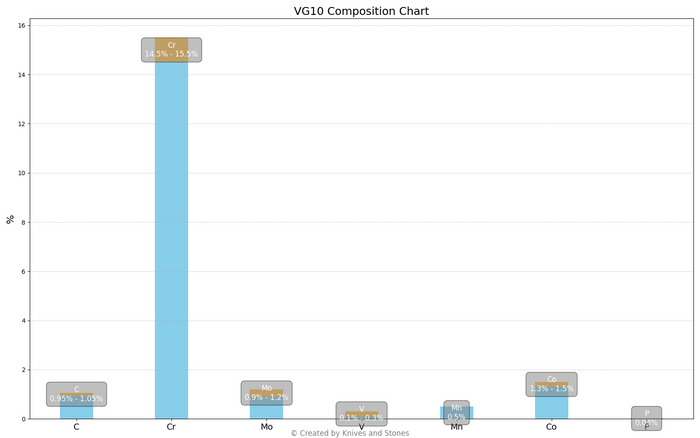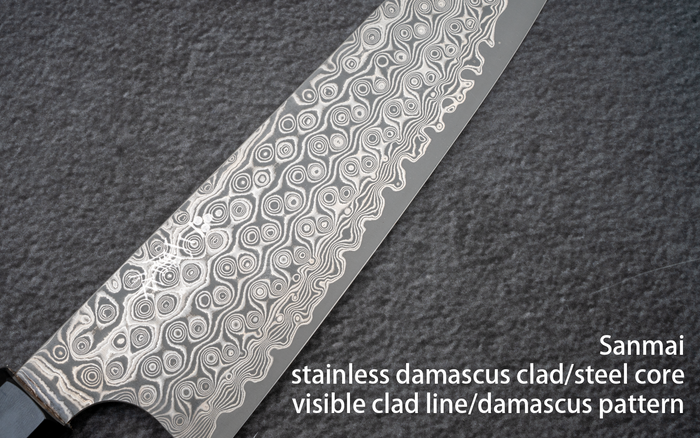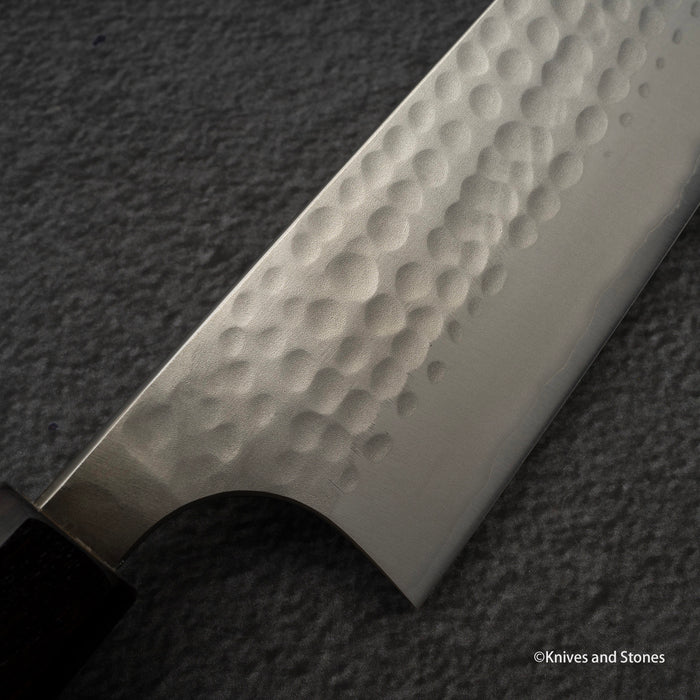Knives and Stones | SKU:
KNS-VGTSDA-NA180
K&S VG10 Tsuchime Damascus Nakiri 180mm
Regular price
$229.95
Unit price
/
Unavailable
K&S VG10 Tsuchime Damascus Nakiri 180mm is backordered and will ship as soon as it is back in stock.
Couldn't load pickup availability
Detailed Specifications
| Line | K&S VG10 Tsuchime Damascus |
| Profile | Nakiri |
| Bevel Type | Double Bevel |
| Weight | 139 g | 4.9 oz |
| Edge Length | 168 mm | 6 39/64″ |
| Heel Height | 48 mm | 1 57/64″ |
| Width @ Spine | 2.0 mm | 5/64″ |
| Width @ Mid | 1.9 mm | 5/64″ |
| Width @ 1cm from Tip | 1.9 mm | 5/64″ |
| Steel | VG10 | Stainless |
| Blade Construction | Sanmai - Stainless Damascus Clad |
| Hardness (HRC) | 59 - 61 |
| Surface Finish | Tsuchime |
| Handle | Octagonal Teak Handle |
| Region | Other |
| Best for |
|

| Pros | Cons |
|
|
|
Care Instruction
- Don't cut hard things! Japanese knives are brittle so bone hacking is a NO NO!
- Wash with neutral detergent after use, and wipe dry;
- Please don't wash knife with dishwasher, it will damage the wood handle;
- Be careful not to leave the knife close to a heat source for a long time;
- It is a lot more dangerous to cut with a blunt knife than a sharp knife!
- It is best to sharpen a Japanese knife regularly on a waterstone.

